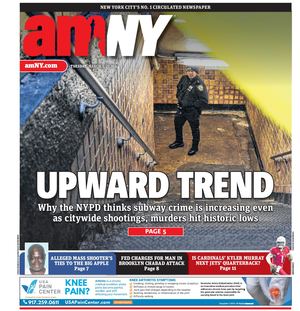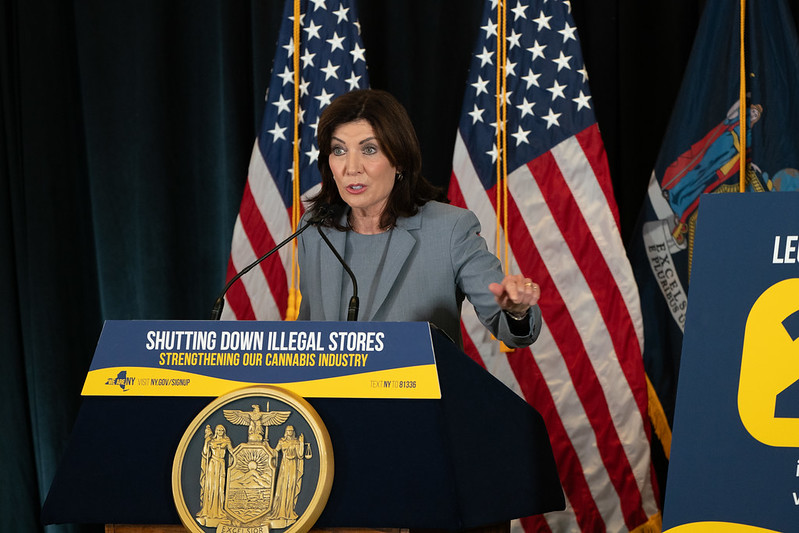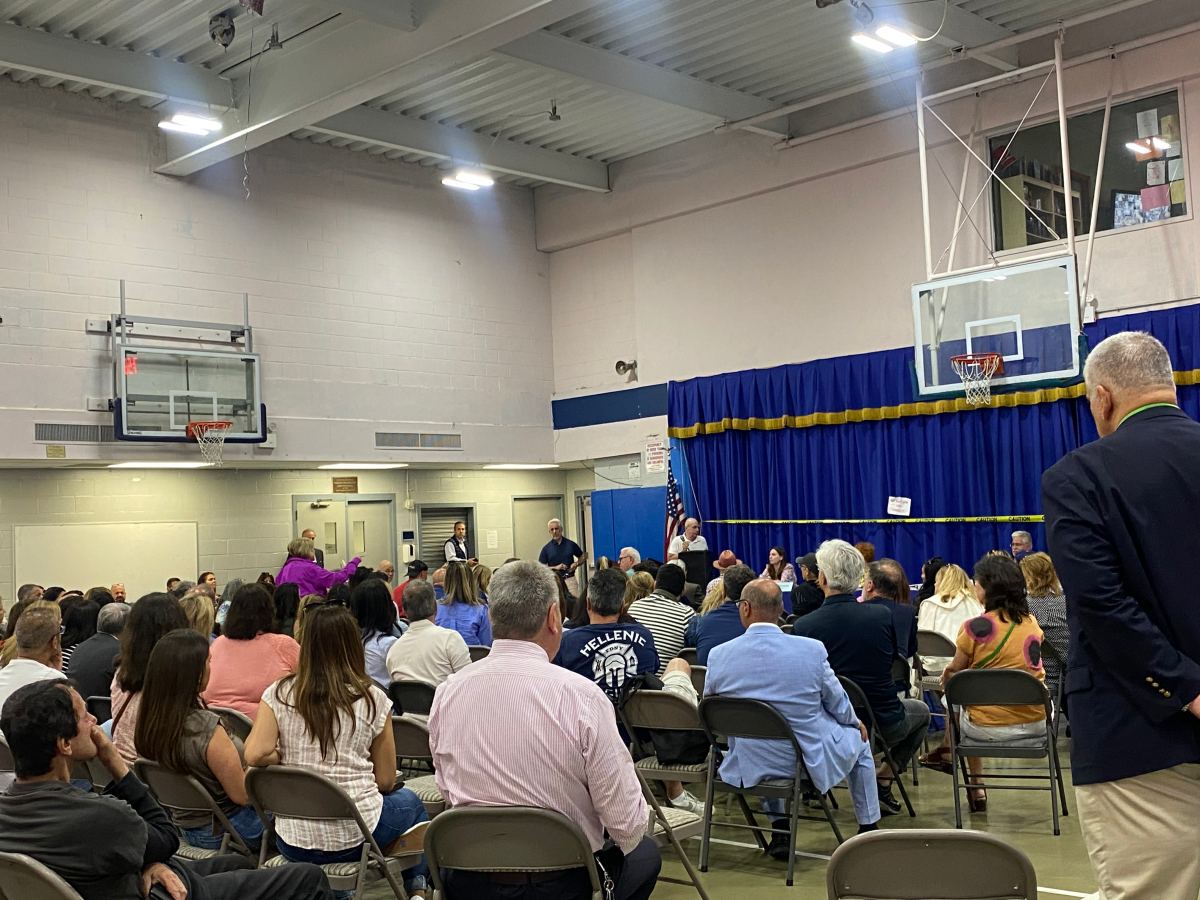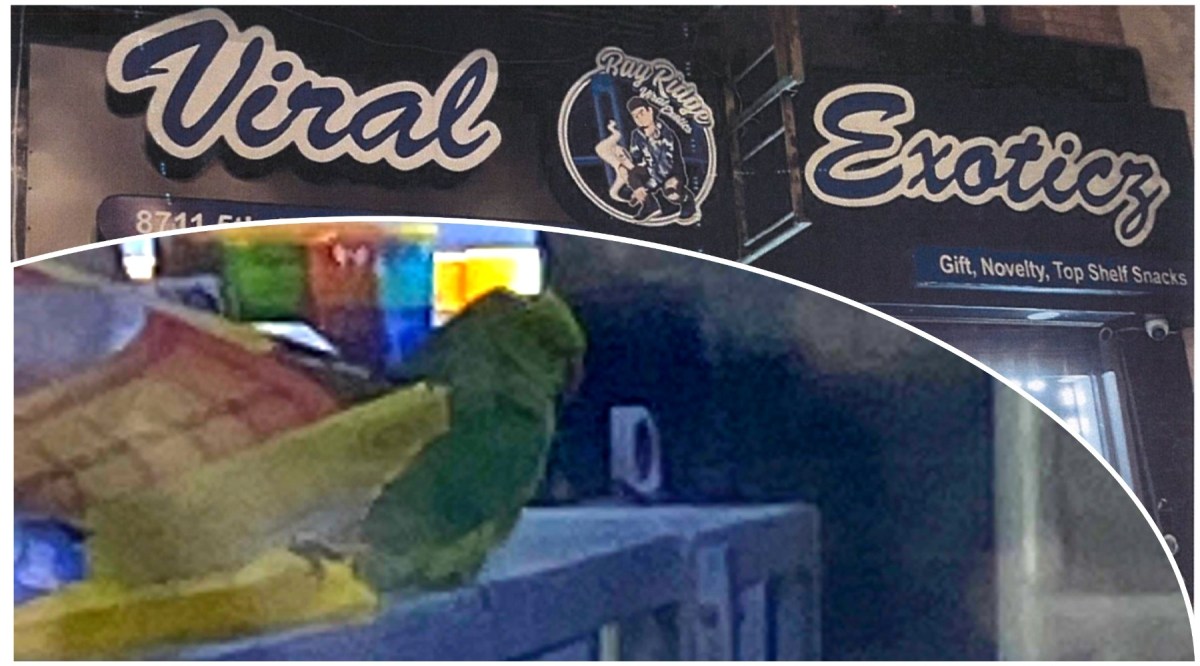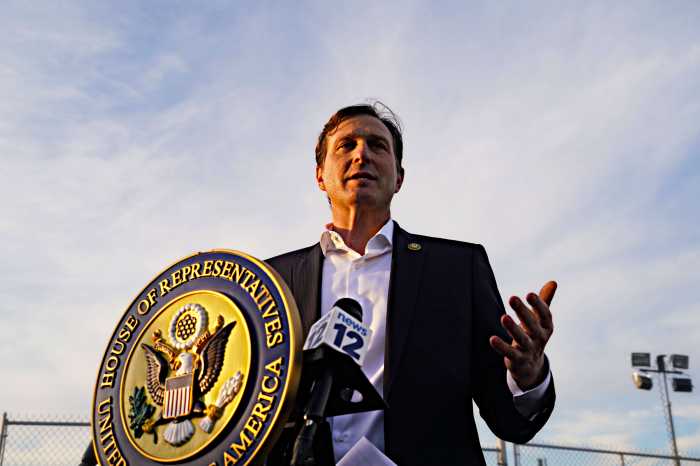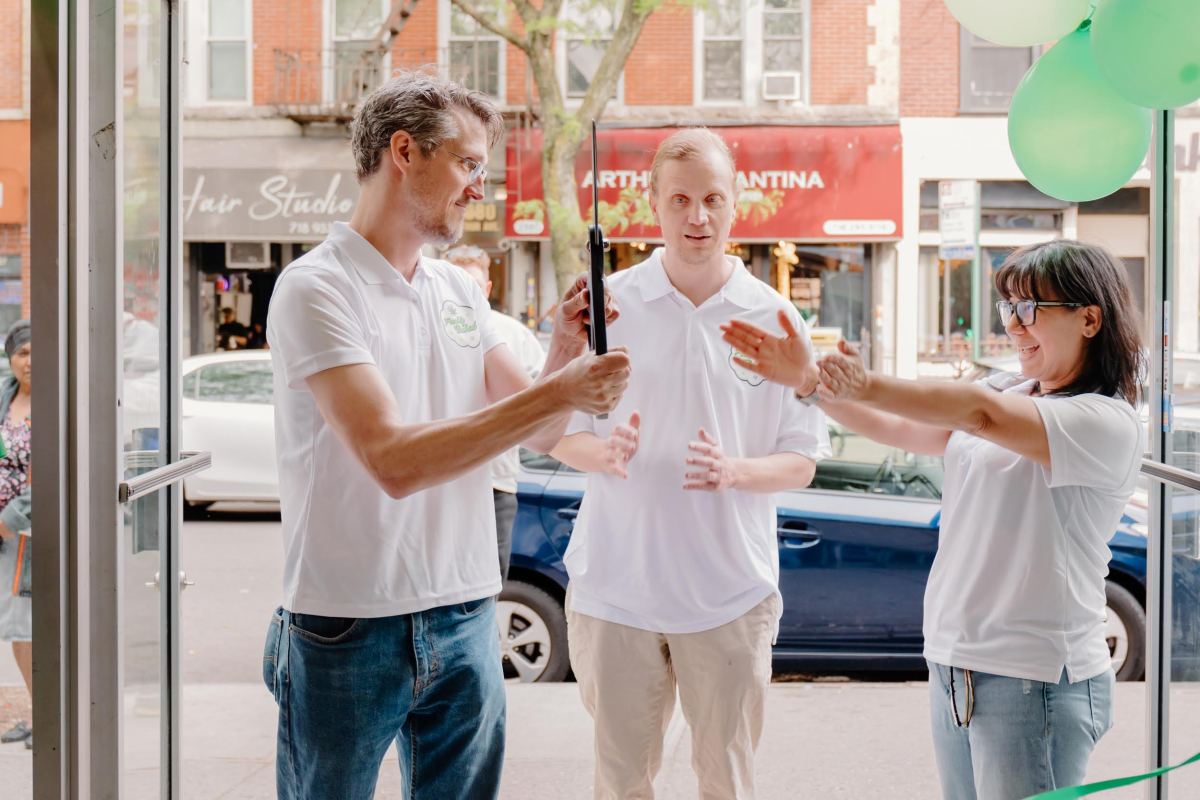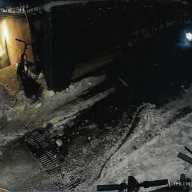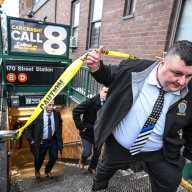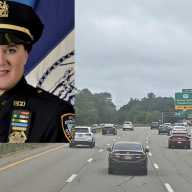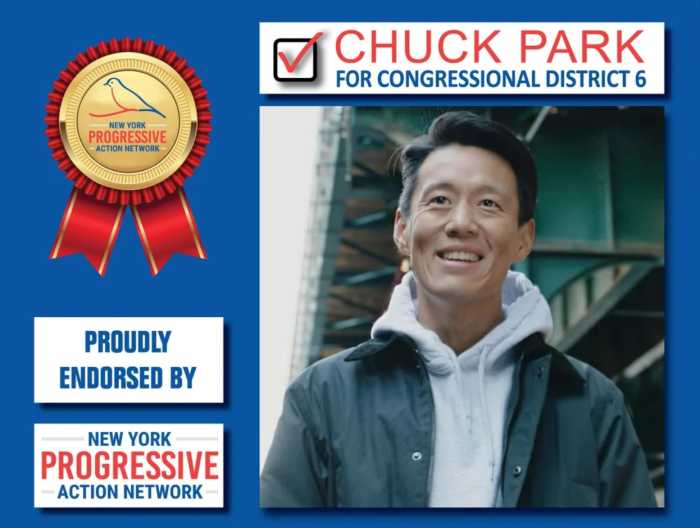More than 400 unlicensed cannabis shops across New York City have been shut down since the state Legislature expanded the city’s enforcement power in this year’s state budget, Gov. Kathy Hochul and Mayor Eric Adams touted on Tuesday.
Hochul, during a Tuesday news conference with Adams at John Jay College of Criminal Justice, said illegal weed shops had been able to proliferate across the city in the years since marijuana legalization took effect thanks to the glacial pace at which the state has issued licenses to sell legally.
The governor said the sheer number of illicit shops has hurt the burgeoning legal market and posed a danger to public safety, as many of them sell products marketed to children.
“How do the legal businesses thrive, if the illegal ones are dominating the market?” Hochul said. “They got a head start, they jumped out of the box. And there they were, renting the spaces, dotting every street corner and all of the spaces in between … I’m sick and tired of the abuses that have gone on up until this point. Leave our kids alone, let the legal industry prosper.”
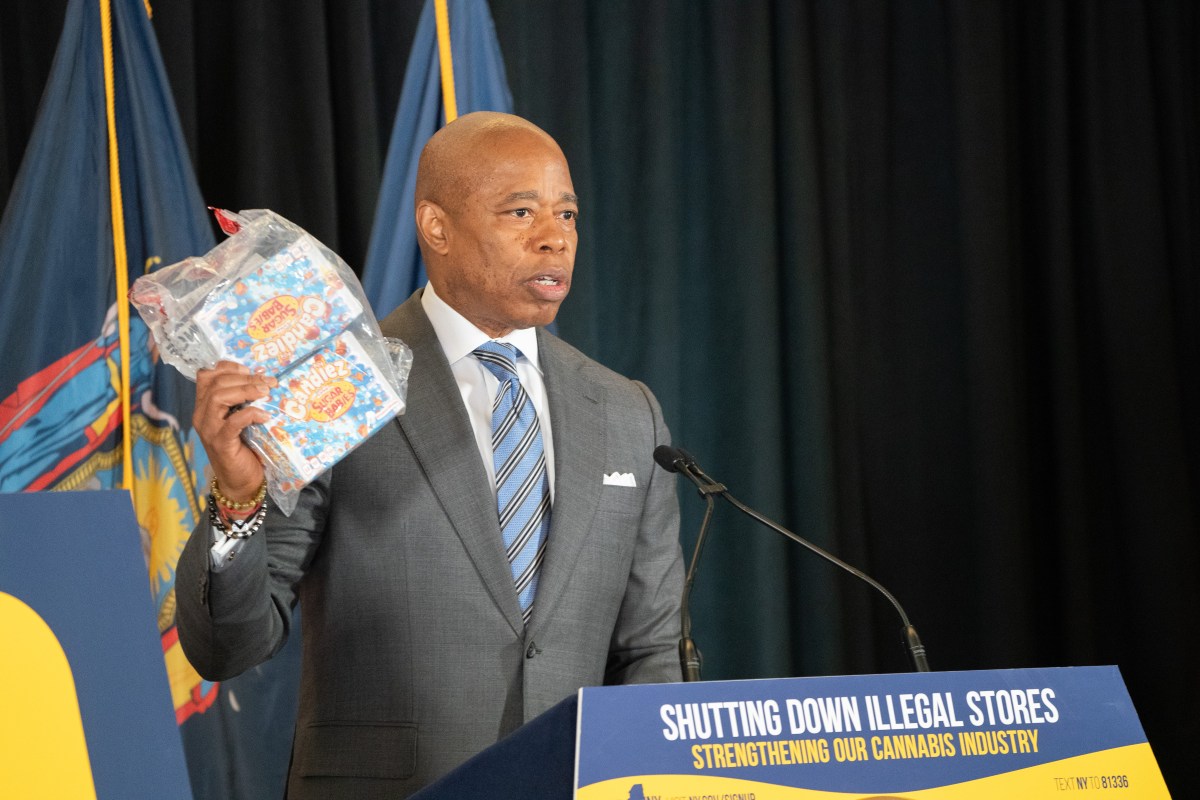
Mayor Adams said the city’s latest effort to shutter unlicensed cannabis sellers — “Operation Padlock to Protect” — has closed down over 400 of the city’s roughly 2,800 illegal weed stores since it launched in early May. He said that equates to $13.3 million in illegal products and over $30 million in fines.
“When we instituted Operation Padlock to Protect, we closed, shut down over 400 illegal smoke shops in just a few weeks, making a huge difference in the quality of life for all New Yorkers in record time,” Adams said.
However, the 400 stores the city closed over the past month falls short of the mayor’s previously often-repeated pledge that he would padlock all the unlicensed shops across the city within 30 days once given expanded enforcement power.
The city’s expanded power to close the illegal stores was granted through legislation included in the Fiscal Year 2025 state budget. It grants local law enforcement agencies, like the city Sheriff’s office and the NYPD, the power to shutter the shops found selling cannabis products without a license during inspections.
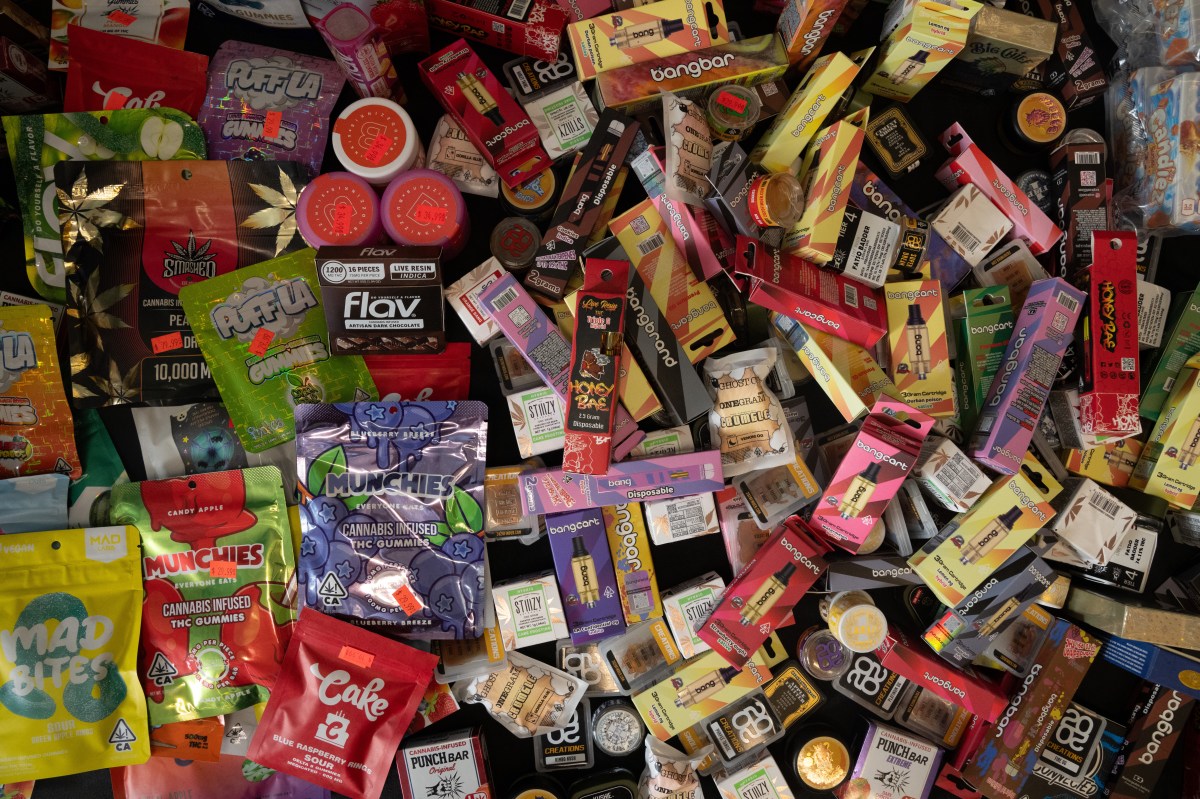
But, Adams last month said the NYPD does not have the power to conduct raids independently and must first be deputized by the Sheriff’s office.
Additionally, after stores are raided and padlocked, they still can apply to the city’s Office of Administrative Trials and Hearings (OATH) to reopen after a certain period if they can demonstrate that they are no longer selling the illegal goods.
The governor said the crackdown has already yielded results, with legal sales soaring by 27% over the past month.
“That makes a difference between staying open and closing,” Hochul said. “That means you can continue paying good wages to your workers. It means … you’re gonna be prosperous, you’re gonna be able to finally live the dreams that have been delayed for too long.”
Read More: https://www.amny.com/politics/
